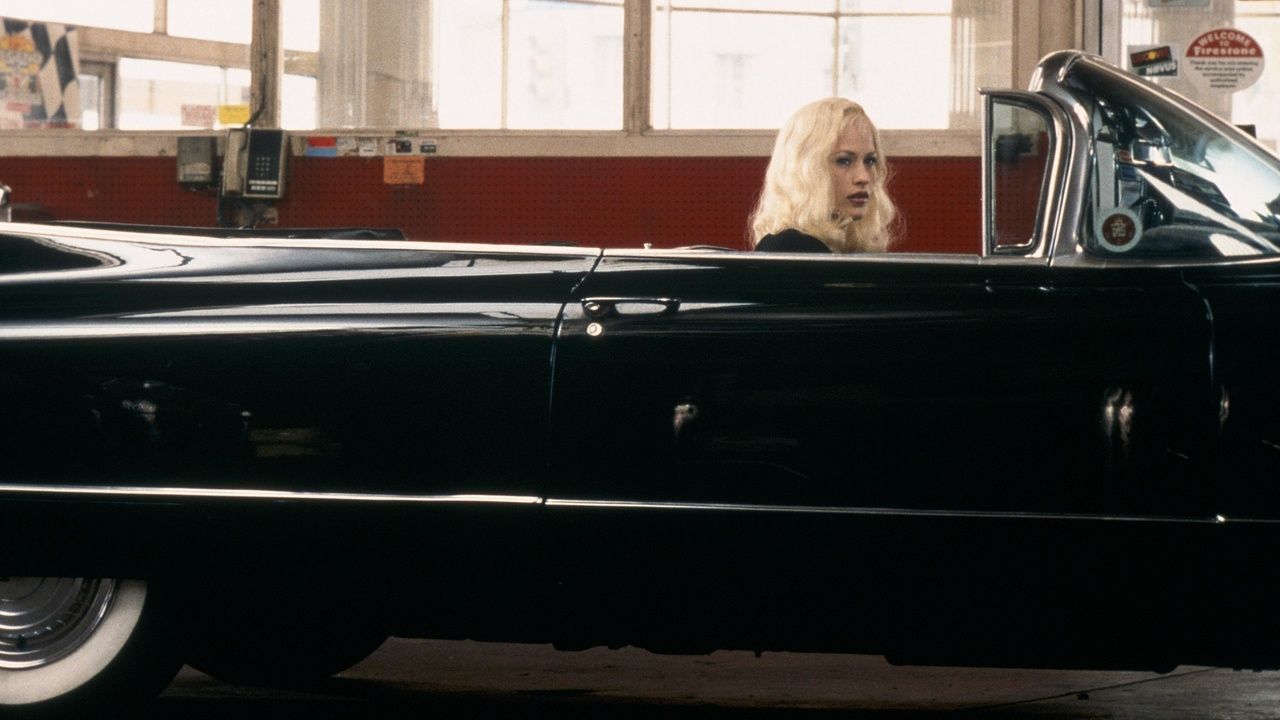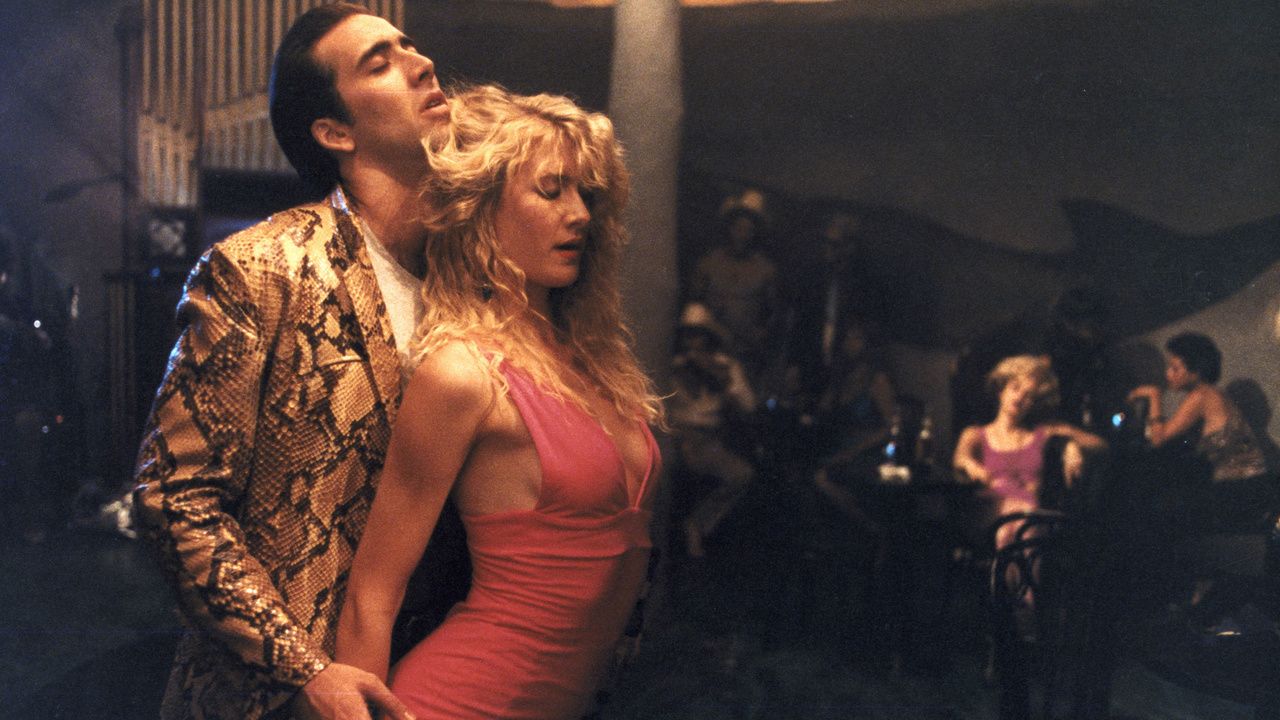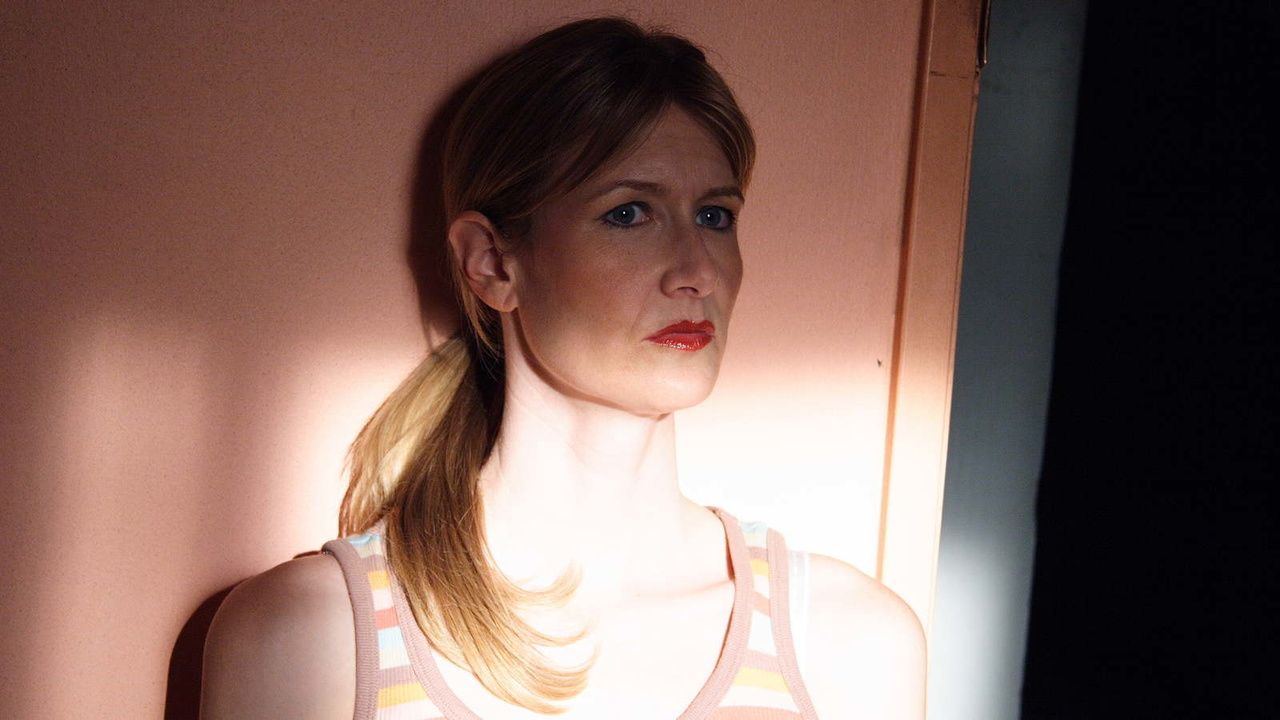Few filmmakers are so distinct that they become their own adjective, however David Lynch is one of those film-makers. Lynch as a director and storyteller has been exploring what makes the human psyche tick, and giving us Lynchian nightmares in the best possible way ever since he emerged with his 1977 debut feature Eraserhead. Since then, Lynch has perfected his dreamy, surreal and absurdly comic style, and gifted us with some of the most influential films of all time, even if he's supposedly retired from feature films; he even brought his sensibility to the small screen with the groundbreaking series Twin Peaks.
Looking through Lynch’s filmography, many have pondered and argued over which of his achievements reign supreme, and this question is made even harder by how subjective Lynch’s films are for each viewer. Just ask a film club or cinema studies class to state their favorite Lynch flick; what ensues is sure to be rowdy and heated. Regardless of how people like their Lynch, this list will explore one of the most diverse and eclectic oeuvres of all time, ranking it (subjectively) from least best to best; that's the thing with Lynch, even his only real failure of a film is beloved by many and still pretty interesting, so there is no "worst" Lynch. So, this is Part One-- The Least of Lynch.
5 Dune
It’s rare for a filmmaker as personal as Lynch to create a movie that doesn’t accurately represent his voice, but that’s exactly what occurred with his ambitious yet uneven adaptation of Frank Herbert’s classic novel Dune. Working with a large budget, A-list talent, and celebrated source material, Lynch’s Dune on paper looked to be the catalyst that could propel him to mainstream Hollywood acceptance. Instead, the film fell pray to studio tinkering and tampering, and Lynch never quite found a way to merge Hebert’s dense novel with his own creative vision. Ultimately much of Dune is rather convoluted, filled with too many sub-plots and side characters, and lacking a cohesive story or tone (which is probably why the highly successful new Dune is basically an introduction to a larger franchise). While glimmers of Lynch’s style and ambition shine through, his singular voice is drowned out by the film’s bombastic nature on most occasions. Still, there are fans who admire Dune for its quirky personality and energy, and it certainly has some entertainment value, including a young Kyle McLaughlin in the title role, a gloriously '80s cameo from Sting, and some interesting visuals.
In the grand scheme of his career, Dune proved to be a rare misstep for Lynch, and the only film he regrets. However, while it’s not looked upon favorably, its failure encouraged Lynch to explore more personal subject material which later resulted in his 1986 masterpiece Blue Velvet. It also brought him together with Kyle McLaughlin, who would later star in the aforementioned Velvet and as Dale Cooper in Twin Peaks. Ultimately, while Dune proved to be a miss for Lynch, it helped pave the way for him to fully develop his individual style as a film-maker.
4 The Straight Story
Yes, David Lynch made a Disney movie. It’s a testament to how imaginative Lynch’s films are that his most accessible movie involves a man traveling cross-country on a lawn-mower. Yet, that’s the appeal of his 1999 film The Straight Story. The film involves aging WWII veteran Alvin (Richard Farnsworth) who, upon hearing that his brother (Harry Dean Stanton) has suffered a stroke, decides to travel to see him. Considering his bad eyesight and legs, Alvin makes due with a lawnmower attached to a trailer going 5 MPH. In a refreshing change of pace, Lynch takes an understated approach to the eccentricities of rural life here and frames The Straight Story as a road trip movie, humanizing Alvin’s interactions with those he meets along the way. Lynch also wisely allows Farnsworth to showcase a truly moving and sincere performance, and manages to explore themes of aging, the past, grief and family in a manner that’s heartfelt but never maudlin or sappy.
Due to its more subtle nature, The Straight Story might not be as ambitious or inventive in terms of style compared to other films in Lynch’s catalog. However, what it may lack in edge or daring, it makes up for in terms of emotional resonance and sincerity. Even if Lynch vans view The Straight Story as merely a curiosity, it's still a strong indicator of the director’s versatility as a filmmaker and proof that his distinct voice can translate to accessible material. Overall, The Straight Story is a subtle yet affecting change of pace for Lynch and proof of his dynamic range as well.
3 Wild at Heart
Filmed in-between breaks of Lynch’s acclaimed series Twin Peaks, Wild at Heart finds Lynch letting loose and tapping into some of his most pure and wide-spanning influences. Part road-movie, part romance, part gritty thriller, Wild at Heart follows Sailor Ripley (Nicholas Cage) as he enters a passionate romance with Lula Fortune (Lynch regular Laura Dern). However, the two find themselves facing off hired killers, Lula’s controlling mother, and many other surreal incidents along the way. Wild at Heart finds Lynch at his most visceral and violently exuberant, as he pays tribute to classic outlaw films of the '50s and contains a mix of old-school romance with elements of gritty noir along the way. While the film isn’t always his most concise, tight, or intellectually stimulating, Wild at Heart is undeniably original and both Cage and Dern deliver two of their most liberated performances ever. Lynch also populates the film with a strong cast of character actors, including Wilhelm Defoe as a psychotic hitman Bobby Peru, Diane Ladd (Dern's real mother) in a tour de force performance as Lulu’s domineering mother, and Henry Dean Stanton as her tormented boyfriend.
Lynch’s juxtaposition of tones and styles can sometimes make Wild at Heart feel a bit overstuffed, and admittedly its symbolism can be a bit on the nose. However, Lynch’s ambition and the commitment of his cast keep it compulsively watchable even in its uneven moments. Wild at Heart is one of Lynch’s most polarizing films, and was angrily booed at the Cannes Film Festival despite winning the coveted Palm d’Or, although as of recently it's began to receive positive re-evaluation. If it’s not among his most cohesive films, Wild at Heart still works as an exercise in Lynch purely demonstrating his stylistic abilities.
2 Lost Highway
In the '90s, Lynch was very much experimenting with his storytelling and filmmaking; while receptions to his films in this period were mixed, many of his signature ideas and concepts were being formed at this time. His 1997 film Lost Highway helped establish Lynch’s fondness for neo-noir, mixed identities, and fragmented realities, themes he would continue to explore and perfect later in his career. Lost Highway follows sax player Fred Madison (Bill Pullman), who finds himself suddenly being blackmailed over the murder of an old colleague. From there, Madison is caught up in a surreal web of mistaken identity and begins to question his very reality as the movie seems to transform him into another person entirely. As a film, Lost Highway is less driven by plot and more by atmosphere, which Lynch conjures up exquisitely and manages to effectively disorient the viewer in the process. Its noir styling adds a constant air of mystery, and Lynch’s visual, stream-of-consciousness storytelling adds riddles and clues that thicken the plot.
Lost Highway can feel a bit too fragmented at times, and it doesn’t have quite the emotional weight of other entries in terms of character. At its best, though, it creates some artfully haunting moments of its own-- the sequence where the Mystery Man approaches Pullman at a party is bone-chilling, and its finale is one of the most twisted Lynch has ever pulled off. Its industrial rock score (with NIN, David Bowie, Lou Reed, and many more) is also particularly fantastic, and has gone on to become a soundtrack classic. In terms of where it stands in his filmography, Lost Highway may not have redefined his career the way some think, but it serves as an effective transitional film and in many ways establishes themes which Lynch would revisit to even greater effect in later works such as Mulholland Drive.
1 Inland Empire
The last feature-length film Lynch ever made for wide release, Inland Empire has quite a curious legacy and remains one of Lynch's most fascinating experiments. Shot completely on digital, Inland Empire's plot finds Nikki Grace (portrayed by Laura Dern) who, after winning a coveted role originated by her late mother in a Hollywood remake, finds her sense of reality slowly deteriorating into a bizarre and nightmarish odyssey. Picking up the surreal Hollywood commentary from Mulholland Drive, Lynch truly pulls out all the stops here, and keeps the twisted and psychological thrills going at an unrelenting pace. Credit to Laura Dern, who delivers a power-house performance (probably her best, and the best acting in Lynch's filmography) as she inhabits multiple characters and realities to tremendous effect. Inland is a full-on visual and technical experience, and admittedly may be less accessible than Mulholland but still manages to contain a boldness that's exciting to see unfold. The film's embrace of the digital format also adds a claustrophobic quality to the visuals that further add to the suspense.
Inland Empire showcases Lynch late into his career, continuing to explore and push the medium in ways he'd extend to the brilliant Showtime series Twin Peaks: The Return. While it may not contain the same emotional resonance or balance of previous films, Inland Empire illustrates how uncompromising Lynch's vision continues to be. Thanks to Lynch and Dern's commitment, the film serves as a thrilling and twisted late-career entry in his catalog. Although it didn't receive as much critical acclaim upon initial release, Inland Empire's status has since grown in Lynch's filmography, and is a masterpiece of dark, subconscious dream-work. While Lynch hasn't made a feature film since, Inland Empire proves that he's still capable of expanding his craft, no matter the results.



-1.jpg)

